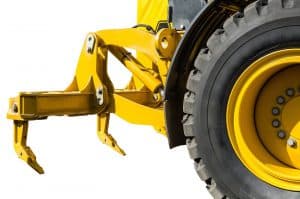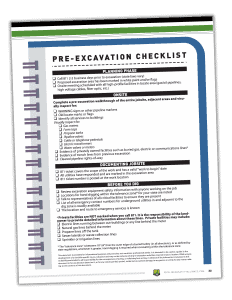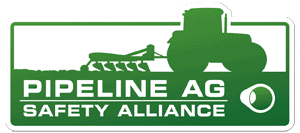APRIL 2020

Whitney Price
Project Coordinator
Pipeline Ag Safety Alliance
What is 811?
811 is the national number designated by the Federal Communications Commission to help protect homeowners and professional excavators from unintentionally hitting underground utility lines while working on digging projects – large and small.
Myth: Calling 811 will cost me time and money.
Calling 811 is FREE to you. The cost is paid by utility companies to protect you. After you call, professional locators will be sent to the site within 2-3 business days (state laws vary). Also, calling in advance while you are planning your project will help save you time.
Myth: If I hit a pipeline and nothing happens, there’s nothing to worry about.
Even if it appears the utility isn’t damaged, always call and notify the utility company. Even a small dent, scrape, gouge, or scratch in a pipeline, or other apparently minor damages, could cause a major problem in the future.
The 811 Process for Farmers/Ranchers:
- Notify Gopher State One Call, in Minnesota, by calling 811 or making an online request.
To find information for other states, visit: call811.com/811-In-Your-State - Wait 48 hours (excluding holiday and weekends in Minnesota) after submitting the locate request.
- Confirm that all affected utility operators have responded to your request and have located accurately. State laws vary.
- Respect the marks.
- Dig Carefully. State laws generally prohibit the use of mechanized equipment within 18-24” of a marked utility. In Minnesota, the tolerance zone is 24.
What Does NOT Get Marked? Private Facilities
Some underground lines in your work area may not be utility owned. These are considered private facilities and will NOT be marked by public utility companies. Types of private facilities include, but are not limited to, heating systems for pools, electricity for outbuilding, invisible fences, fiber optic lines, septic systems, and satellite dishes. If you think you may have private facilities you should contact a private utility locator to identify and locate them.
- For more information about private underground facilities and homeowner responsibilities please read through the GSOC Handbook: www.gopherstateonecall.org/homeowners


